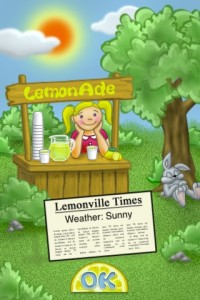I'll explain that in a minute but let me first review this week's offerings. First up was Bedtime Stories that we saw on Christmas Day (part of a family tradition of seeing movies that day). This is basically a fairly standard Adam Sandler comedy that happens to be a Disney-kids flick. By standard I mean, Adam Sandler is a flawed but life-losing character who then meets someone (kids + girl), engages in heartbreaking conflict, develops an understanding of the way the world works, blocks the even more flawed but more life-successful bad guys, and lives happily ever after, content with the simple life. By Disney-kids, add a seemingly magical run of coincidences that are related to kid's bedtime stories and some computer generated animation. All in all, the movie worked. It was as funny as any Adam Sandler comedy but also funny to the kids as well. My son, who is my barometer for kid-funny, cacked himself throughout the movie while my youngest daughter, my barometer for plot coherence, kept up her usual running commentary of understanding. The movie also used foreboding in a good way -- how will those stories play out in the real world. Not something you see everyday. As Sandler's character thought there was magic in the air, it was he who had to deal with the nexus between fiction and reality.
Let's jump a week to New Years Day, today, when I took the kids to see Bolt. Bolt is a dog-star who doesn't realise life isn't a movie and he doesn't have super-powers. So he is delusional but less so the Buzz Lightyear and what is more, when thrust into the real world, he realises it pretty quickly; certainly more so than Buzz but with a similar existential angst. Because we adults had seen delusion before the movie was no Toy Story but the opening sequence, in particular, left my son in hysterics (those bad guys were cleverly goofy) but my youngest daughter with her head buried in my chest so there was a mixed reaction there. But the movie sustained itself even if the 4 year old was a tad scared. Again, the primary issue was the main character dealing with real vs fiction and their role in life.
One night, we watched with our eldest two kids, Bridge to Terabithia. This movie is based on a book about friendship between two kids who are both isolated from others for various reasons but share an imagination and build an imaginary world, Terabithia, to escape in. They have no delusions between reality versus fiction but others want them to be more grounded in reality. That conflict is brought to a head by a shocking event (I'll spare you in case you haven't seen it but if you want to know Emily Bazelon discussed it all here). Suffice it to say, the movie is a downer but on a classic level on a higher plane than other movies. But it is a movie aimed at kids -- maybe between 8 and 14 -- and is useful preparation for life's issues. It also has its entertaining moments. However, you could hardly describe it as light.
So how would one sort out which movie to see? All three movies are rated PG or below and so are deemed safe for kids. According to Kids-In-Mind, each rates 3 or 4 out of ten for violence. As I worry about that characteristic for safety more than others, they are all within acceptable parameters. But Bridge to Terabithia is the one I would agonise over on protection grounds more than the others. Why? Because it actually has hard substantive content. It is the most real and therefore, the most emotionally wrenching. Amazing. We talk so much of getting our kids into real art and literature but when confronted with a piece that gets them there, we hesitate.
This suggests to me that protection should be one criteria but should not hold a veto on our decisions. I am confident that we will face moments where we are grateful our kids saw Terabithia in ways in which I won't care about the others. It is disturbing and so you need time to deal with it but with that time, there is a good investment to be had.
But beyond a meaningful message, this week highlights to me the problem with rating systems and most reviews. Kids-In-Mind is useful input on the protection -- or cost -- side of taking kids to movies. But there is the benefit side too. I hardly know any reviewers (although I guess I and parent bloggers are an exception) where the reviewers attended movies with kids. How can you possibly give a kids movie 2, 3 or 5 stars without having seen it with a kid? We want to know whether it actually held attention, what type of kids it might scare, whether the plot was comprehendable to a child and, most critically, whether kids actually laughed. I can go to all manner of crappy kids movies but if my son sits besides me laughing all the way through, I just don't care. It is worth taking him and worth paying for the extra adult ticket to sit next to him. For a proper screen, we need a child whose eyes and ears to see the movie through.





